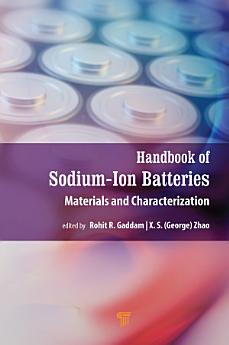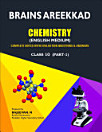Handbook of Sodium-Ion Batteries: Materials and Characterization
About this ebook
While the past decade has witnessed significant research advances and breakthroughs in developing the sodium-ion battery technology, there still remain fundamental challenges that must be overcome to push the technology forward. This book comprises 13 chapters that discuss the fundamental challenges, electrode materials, electrolytes, separators, advanced instrumental analysis techniques, and computational methods for sodium-ion batteries from renowned scientists. The book is a unique combination of all aspects associated with sodium-ion batteries and can therefore be used as a handbook.
About the author
Rohit R. Gaddam is an assistant professor at the Department of Chemical Engineering in the Indian Institute of Science Education and Research (IISER), Bhopal, India. He completed his PhD under Prof. George Zhao at the University of Queensland (UQ), Australia, on alkali-ion batteries. He was awarded the IPRS and UQ Centennial Scholarships for his PhD. He also briefly pursued his research at Washington University in St. Louis, USA, and the CSIR-Indian Institute of Chemical Technology, Hyderabad, India. He was the recipient of the prestigious Alexander von Humboldt Fellowship to pursue his research in the field of energy storage at the Technical University of Munich, Germany. Dr Gaddam’s current research focuses on advanced functional materials synthesis for energy applications.
X. S. (George) Zhao is a professor and an ARC Australian Laureate Fellow of the School of Chemical Engineering at UQ. He has also been an ARC Future Fellow (2011–2014) and a UQ Vice Chancellor’s Research and Teaching Fellow (2014–2017). Prof. Zhao’s research focuses on nanoporous materials for sustainable energy storage and conversion as well as for environmentally friendly chemical processes and products. The overall objective of his research programs is to develop tailor-designed advanced porous materials with desired structural, interfacial, and morphological properties for applications in fields ranging from energy storage and conversion, water and air purification, adsorption, heterogeneous catalysis, and seawater desalination to photonics. Prof. Zhao is a recipient of several honors and awards, including 2nd prize of the Chinese Academy of Sciences, Global Highly Cited Researcher, American Carbon Society Award, and Fellow of the Royal Society of Chemistry.




